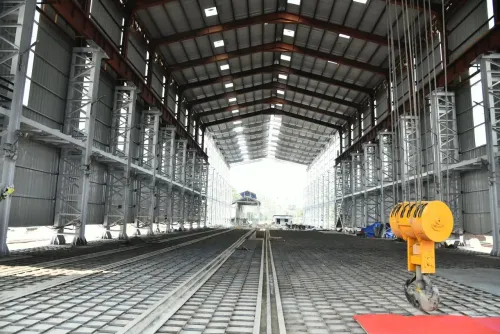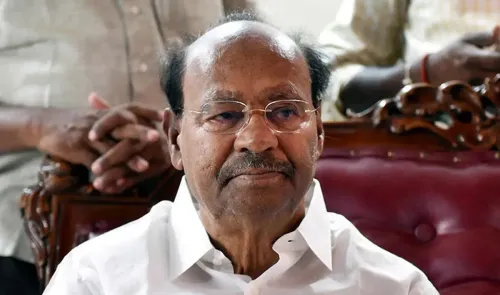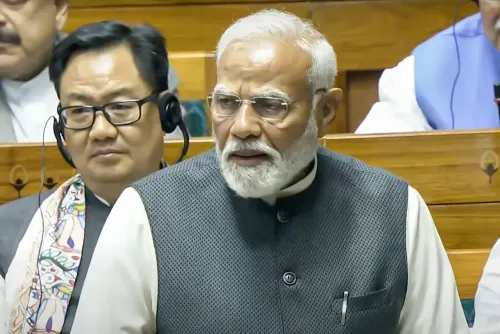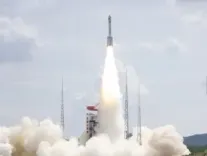Iran Willing to Consider Indirect Talks with US: FM

Synopsis
Key Takeaways
- Iran demands a change in US policy for direct talks.
- Indirect negotiations are still a possibility for Iran.
- US sanctions against Iran are viewed as hostile actions.
- Iran is ready to resume JCPOA commitments if its rights are recognized.
- No war is anticipated, as Iran is prepared for any scenario.
Tehran, March 24 (NationPress) Iranian Foreign Minister Seyed Abbas Araghchi declared on Monday that his nation will not participate in direct discussions with the United States unless there is a shift in Washington's stance towards Tehran, yet "the path is open for indirect negotiations."
While addressing reporters during a Red Crescent Society meeting in Tehran, Araghchi criticized the US government’s so-called "maximum pressure" strategy and its ongoing threats against Iran, stressing that such actions render it impossible for Iran to engage in negotiations with Washington unless there is "a fundamental change in attitude," as reported by Iran's official IRNA news agency.
He further emphasized that even though direct negotiations are not an option currently, Iran is still open to indirect discussions and will relay its messages through these channels.
Moreover, Araghchi mentioned plots against Iran and reiterated that "there will be no war" since the country is completely prepared for any scenario, according to Xinhua news agency.
In another report by IRNA on Sunday, Behrouz Kamalvandi, the spokesperson for the Atomic Energy Organization of Iran, indicated that Iran is willing to resume its commitments under the Joint Comprehensive Plan of Action (JCPOA) if the other signatories respect its rights.
Earlier this month, Iran's Foreign Ministry spokesperson Esmaeil Baghaei condemned the latest US sanctions targeting several individuals, vessels, and companies associated with Iran's oil exports.
The ministry stated that this action followed the US Treasury's Office of Foreign Assets Control's designation of Iran’s Oil Minister Mohsen Paknejad, along with various companies and vessels linked to the "shadow fleet" used to evade sanctions.
Baghaei dismissed US assertions of being ready to negotiate with Tehran, claiming that the sanctions illustrate Washington's antagonism towards Iran's progress and welfare.
He stated that Iran would hold the US government responsible for the consequences of what he termed unilateral and illegitimate actions, asserting that this move violated international law.
Since assuming office in January, US President Donald Trump has persistently urged Iran to engage in talks regarding its nuclear program while maintaining sanctions imposed after the US exited the 2015 nuclear deal in 2018.
The 2015 nuclear agreement, officially referred to as the JCPOA, provided Iran with sanctions relief in exchange for limitations on its nuclear program. The deal has faced challenges since the US withdrew in 2018 during President Trump's initial term and reinstated sanctions. Tehran has since reduced its compliance but maintains that its nuclear activities are peaceful.










